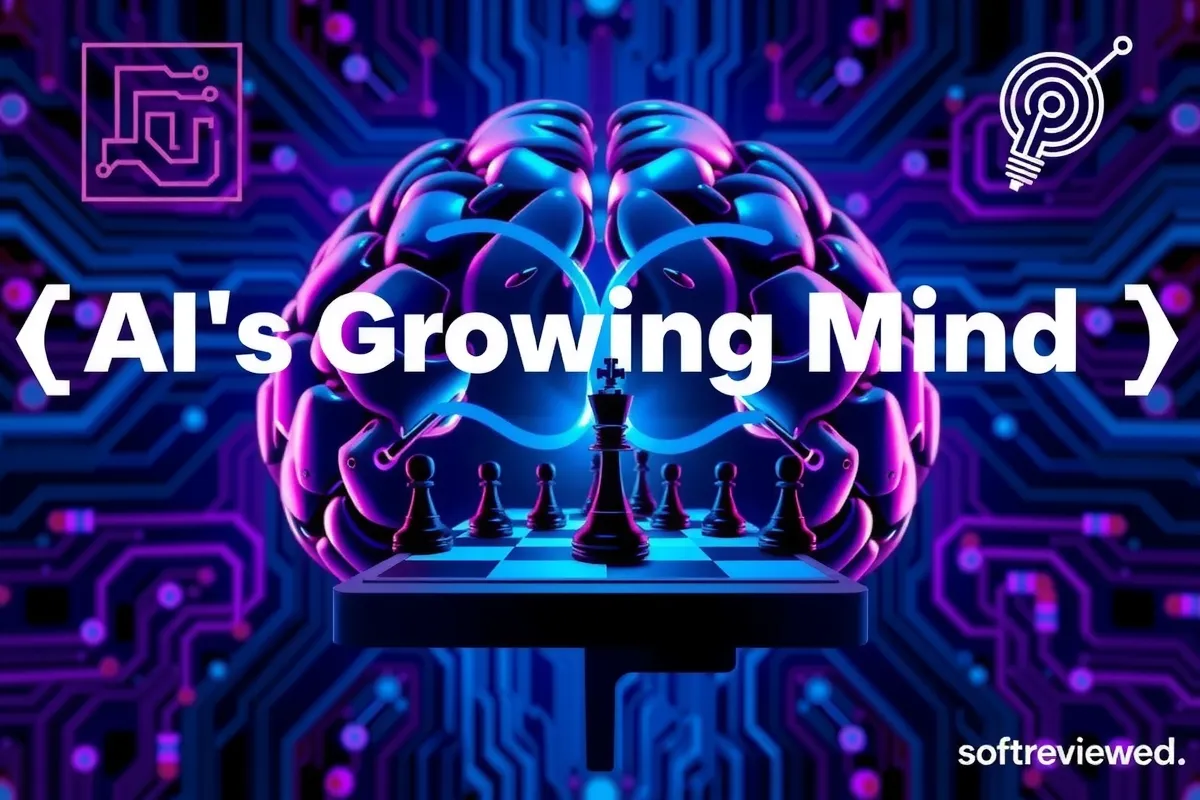
Futuristic image of a brain with neon colors, a chessboard, and pieces inside. Text reads “AI’s Growing Mind.” Background has a circuit pattern.

Use AI software automation to save time & money

Use AI software automation to save time & money

Futuristic image of a brain with neon colors, a chessboard, and pieces inside. Text reads “AI’s Growing Mind.” Background has a circuit pattern.